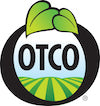You've likely heard about genetically modified foods. They're the stuff of science fiction—laboratory altered plant cells injected with foreign compounds not naturally occurring to allegedly make the plants better at resisting pests (and pesticides); they're designed to grow hardier and faster crops so that we can feed the world, according to the companies behind the science like Monsanto, Cargill and Dow. Actually, it sounds kind of nice—if it were true. But the science is flawed with controversy from the adverse affects on soil, plants, and ecosystems and inability to improve crop yields, to a number of studies linking GMOs to serious human health risks.
Read MoreDo you ever feel like you hear so much about something that you actually no longer hear it? These words or ideas can become background noise to our busy lives, and this is especially true when it comes to nutrients. Extra fiber, protein-rich, antioxidants, Omega-fatty acids…blah blah blah, right? Today's food choices are littered with reminders of the nutrients added beyond those naturally occurring, and often just as vital. And even if we eat what we eat first and foremost because we like it, especially here in the U.S, if we have anything, it's lot of choices to overwhelm us with how exactly we're going to replenish our body's daily nutritional needs.
Read MoreHumans need protein in their diets. From our first sips of mother's milk all the way through our hopefully long lives, the average adult requires anywhere from 40-50 grams of protein per day (and pregnant women can require more than 70 grams per day!). The symptoms of not having enough protein in our diets can include weakness, swelling, depression, abnormal heart rate and even death. And the effects of too much protein: kidney problems, inflammation conditions and even cancer. It's a necessary balance indeed.
Read More

